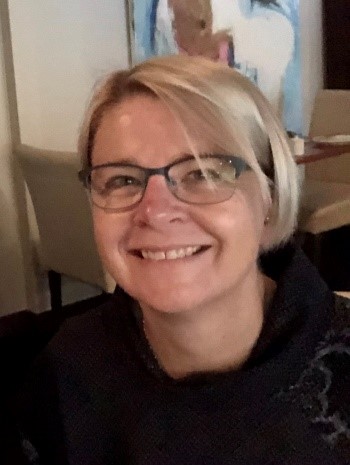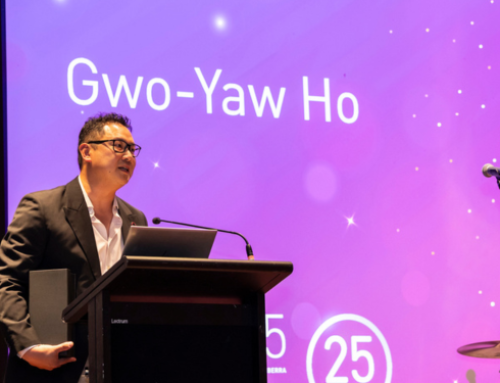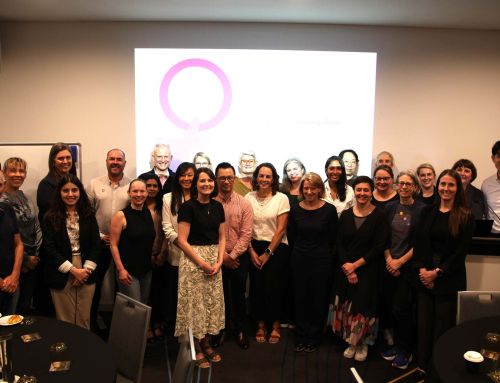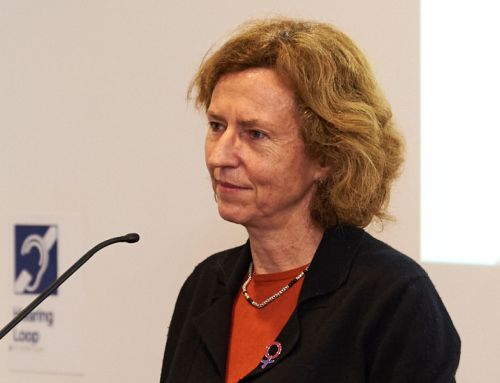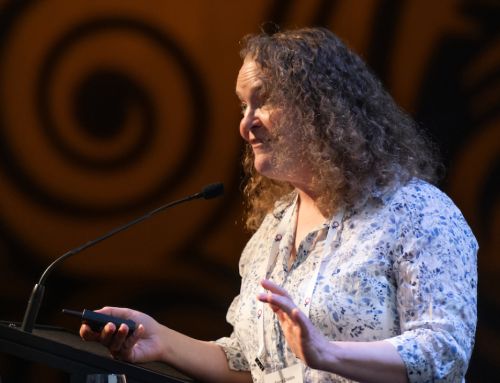Dr Catherine Adams is a Senior Clinical Psychologist who has specialised in Psycho-Oncology for the last 18 years. She works clinically in both the public and private sectors, with the majority of her practice being exclusively in gynaecological cancers. Cath is passionate about developing and delivering care that has the patient at its centre and strongly advocates for the patient voice in all aspects of care. She has been on the ANZGOG Annual Scientific Meeting Steering Committee since 2018.
What did you want to be when you were growing up?
I wanted to be a school teacher like my Dad, his mother, her father etc…but Dad told me it was no longer a respected profession and I would be better off looking for a different career. I was devastated and headed to University with no real idea of what I wanted to do.
Why did you pursue a career in clinical psychology?
Well, I enrolled in first year Psychology at University because the queue was shorter than the one for Japanese (see above). When I found out a distinction in statistics was the only pre-requisite for 2nd year I almost quit…but then I discovered abnormal psychology (as it was called) and my career path to an eventual Research Masters in Clinical Psychology began. After 10 years working in disability, I applied for a position establishing a new Psycho-Oncology service for a bit of a change. What a steep but enjoyable learning curve that was and after almost 20 years I still love it.
What is the importance of Psycho-Oncology?
Psycho-Oncology often provides a conduit between the patient’s life as a person and their journey with cancer. The aim of good psychosocial care is not just to treat the disease but to provide care and support for the whole person and the people surrounding them. Psychosocial care is the responsibility of the entire treating team. If we are able to support a patient psychologically through diagnosis, treatment, survival and/or death, small pilot trials have strongly suggested that, not only is the patient happier with better quality of life, they also have fewer presentations to ED, admissions to hospital and shorter consultations with their doctors. So there is a benefit for everyone! But no-one wants to fund a big efficacy trial into psychosocial care when they could fund the cure for cancer.
Can you explain why holistic care and psychosocial research is important?
As I mentioned, small pilot studies have suggested that holistic care gives better outcomes on many levels. And patients very clearly value holistic care. As I mentioned one of the problems with psychosocial research is obtaining funding for larger studies. I believe that every ANZGOG sponsored trial should involve a component of psychosocial research – this allows us to do psychosocial research on a larger scale but also helps the patients feel that they are being treated holistically and ensures our trials consider the “bigger” picture from the patient’s perspective. I suspect that this would also help with retention in trials as patients are happier when they feel cared for as a person, not just a disease. I think ANZGOG is making great progress in this area but we can always do better!
What has been the proudest moment of your career so far?
Every time I receive a card from a patient or family member thanking me for helping is my proudest moment. I am so honoured to be able to support people through some of the most difficult times in their lives and privileged that they trust me to be there. Being able to help patients have a voice is very rewarding.
How and when did you first get involved with ANZGOG?
It is all Sue Brew’s fault! She asked me to come to Noosa in about 2008 and run a workshop on occupational stress and burnout in gynaeoncology, and then when I joined the team at the Hunter New England Centre for Gynaecological Cancer in 2010 I just kept coming.
A role model that had a significant influence on you in your life?
The Dalai Lama is someone who continues to inspire me. His ability to keep smiling in the face of being forced to leave his beloved homeland and live as a refugee, along with his boundless compassion, inspires me to try and be a better person. I am a long way from his level of achievement in this but I keep trying.
Your favourite place in the world?
Anywhere I can feel a warm breeze on my face, hear birdsong and relax in the vicinity of trees is my favourite place in the world. Which has been very useful in recent months as I can still go to my favourite place by walking out my front or back door.
